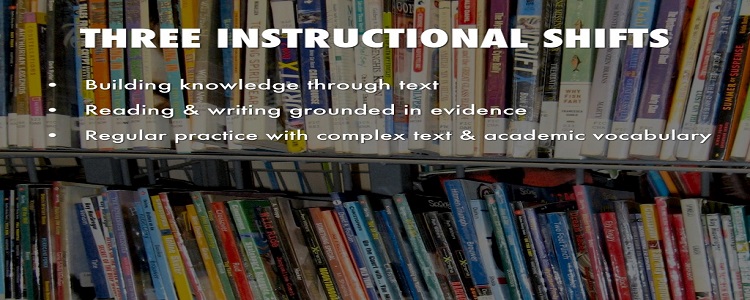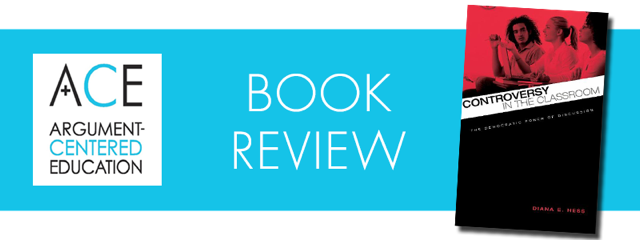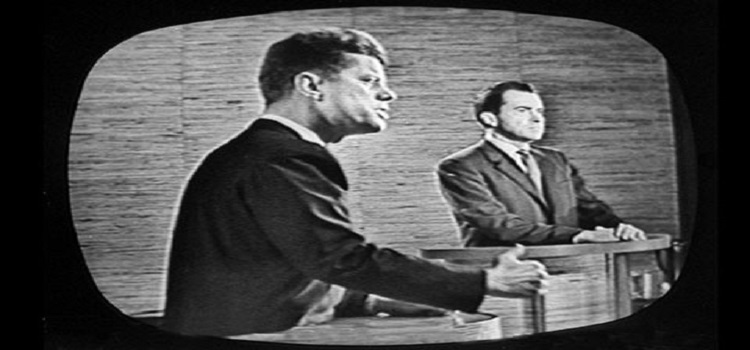Three Instructional Shifts: Simplifying the Common Core & De-Mystifying Curriculum
by Mike Schmoker and Carol Jago
Simplifying and De-Mystifying Instruction
The English Language Arts Common Core could have no less than a transformational effect on American education. But this will only occur if (ironically) we recognize that the actual lists of standards themselves are the weakest portion of the Common Core documents. Done right, the ELA Common Core has the potential to right the ship of literacy, to facilitate, at long last, the creation of coherent curriculum in every course and to rescue us from the fads and pseudo-‐literacies of recent decades. This would thus eventuate in the greatest proportion of college and career-‐ready students in our history. The keys to its success are clarity and simplicity.
As many are beginning to recognize, the true strength of the (still-‐evolving) Common Core is found in the ancillary documents and appendices that accompany the standards. Imperfections notwithstanding, the general emphases contained in these documents describe authentic, traditional literacy far better than their state-‐level predecessors. Despite some occasional over-‐reach, the appendices go a long way toward clarifying what students need most and have always needed: abundant opportunities to engage in close reading of large amounts of high quality, complex text, combined with opportunities to engage in discussion and writing grounded in text.
Argument-Centered Content Delivery
Overview
Posters have gone out to schools and districts near and far identifying the five universal steps to argumentalzing instruction — though some posters remain, if you haven’t gotten yours. Previous articles in The Debatifier have (in parts 1 and 2) described criteria and analyzed the process for effectively formulating a debatable issue: the first step in the five-step argumentalization process.
It’s time to take a closer look at the second step to argumentalizing instruction: teaching content through arguments. Students’ obtaining content knowledge and understanding is not only required to meet specific academic objectives across disciplines, it is also (as we see time and again) essential to their ability to make convincing, college-directed academic arguments.
Controversy in the Classroom – A Compelling Introduction to a Pedagogy that Can Democratize 6th – 12th Grade Instruction
University of Wisconsin – Madison Dean of the School of Education Diana Hess is a national leader in argument pedagogy and civics education (and also an academic partner of Argument-Centered Education). Her first full-length publication, Controversy in the Classroom: The Democratic Power of Discussion (Routledge, 2009), helped make her reputation and forge her current trajectory of influence. In this review we’re going to investigate the close connections between the work’s pedagogical theories and 6th – 12th grade argument-centered instruction.
Professor Hess extols the civic and democratizing importance of structuring argument about controversial issues in middle school and high school. She presents a bevy of evidence for this conviction; one example is the 2003 report from the Carnegie Corporation titled “Civic Mission of the Schools,” which she quotes:
Studies that ask young people whether they had opportunities to discuss current issues in a classroom setting have consistently found that those who did participate in such discussions have a greater interest in politics, improved critical thinking and communication skills, more civic knowledge, and more interest in discussing public affairs out of school. Compared to other students, they also are more likely to say that they will vote and volunteer as adults (28).
Controversy in the Classroom provides an especially vivid quote from a teacher involved in one of the work’s referenced studies, developing the idea that arguing in discussion and taking part in classroom debate is essential for airing out differing ideas and views, and is in some ways a prerequisite for students coming to their own independent thinking on important issues that we teach in our classrooms.
Debate at the Poker Table
by Andrew Brokos
I was heavily involved in debate in high school and college, and as an adult I continue to volunteer with debate-related organizations. Professionally, though, I did not pursue a traditional “debater career” in a field such as law or politics. In fact, there’s nothing traditional at all about my career: I’m a professional poker player.
The connection between debating and playing poker is certainly less obvious than between debating and running for office, but the truth is that I credit a lot of my success in poker to the skills that I learned from debating, skills like critical thinking, considering all sides of an argument, and weighing advantages and disadvantages.
Putting More Debate in the Presidential Debates
Last week, Republican consigliere and frequent electoral debate negotiator Ben Ginsburg appeared on Bloomberg News’ “With All Due Respect,” with John Heilemann and Mark Halperin, to discuss the effort that he led to take debate negotiations with the networks out of the hands of the Republican National Committee. Several candidates were unhappy, as everyone knows by now, about the moderators’ performance during the CNBC Republican Presidential Debate on October 28th. The conversation on WADR turned to the Annenberg Debate Reform Working Group, of which Mr. Ginsburg is a member.
Formed by the Annenberg Public Policy Center of the University of Pennsylvania, and its highly esteemed director Kathleen Hall Jamieson, the Working Group put out a set of 50-page report over the summer with recommendations designed to close the gap between the presidential debates’ civic promise and their increasingly spectacle-ized and infotainment-centered condition.






